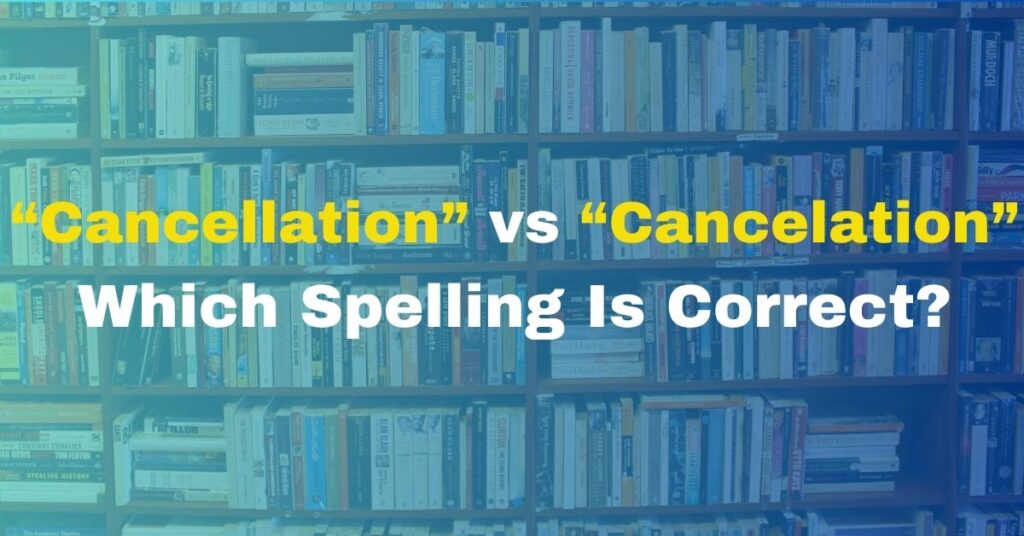Begin with an engaging introduction that outlines the confusion between cancellation and cancelation. Provide a brief overview of the importance of spelling correctly in different contexts and introduce the purpose of the article – to clarify the differences and usage of both terms.
Definition
Offer clear definitions for cancellation and cancelation, emphasizing their origins from the verb cancel. Explain that both words mean the same thing but differ in spelling. This section sets the foundation for the detailed explanation to follow.
Meaning & Explanation
Dive deeper into where and how cancellation and cancelation are used in everyday language.
- Regional preferences: Explain that cancellation is the preferred spelling in both British and American English, but cancelation is more common in some parts of the U.S.
- Formal and informal usage: Discuss how cancellation is the more common choice in formal writing and official documents, while cancelation can occasionally appear in casual contexts, particularly in American English.
Examples & Usage
Provide practical examples to demonstrate the correct usage of both spellings in real-life contexts.
- For cancellation, use formal examples such as:
- “The cancellation of the flight was announced last night.”
- “You must submit the cancellation request 24 hours before the event.”
- For cancelation, provide a few casual or informal instances where this spelling might appear, like:
- “The cancelation of the event was a surprise.”
- “Check your email for the cancelation details.”
Types & Categories
Explore any additional variations or categories related to cancellation and cancelation.
- Other related terms: While the focus is on spelling, this section can also mention other words related to canceling something (e.g., termination, revocation).
- Industry-specific language: Some industries or regions might use one form more than the other, so include a note about where cancelation might occasionally appear (e.g., in less formal American English texts or creative writing).
Related Words & Synonyms
List related terms that might be used interchangeably with cancellation in certain contexts. This helps to expand on the topic and provides value to readers seeking alternative vocabulary.
- Annulment
- Revocation
- Abolishment
- Termination
- Rescission
FAQ Section
Answer some frequently asked questions about cancellation and cancelation. This section helps address common queries concisely.
- Is cancelation ever correct?
- Yes, it is an acceptable alternative in American English, but cancellation is more widely used and preferred.
- Which is more widely used, cancellation or cancelation?
- Cancellation is by far the more commonly used form, especially in formal writing and across British and international English.
- Can I use cancelation in formal writing?
- It’s best to stick with cancellation in formal or professional settings to ensure clarity and consistency.
- Why is there a difference between cancellation and cancelation?
- The difference mainly stems from regional preferences and historical language evolution. While both are derived from the verb cancel, the extra “l” in cancellation follows general English spelling rules.
Conclusion
To summarize the key takeaways from the article:
The standard and most widely accepted spelling is cancellation. While cancelation may appear in informal contexts, it is less commonly used and should be avoided in formal writing to maintain clarity. Additionally, regional differences, particularly between American and British English, contribute to these variations. Therefore, it’s best to choose cancellation in most contexts to ensure consistency and professionalism across different forms of writing.
Requester or Requestor Which Spelling Is Correct?






